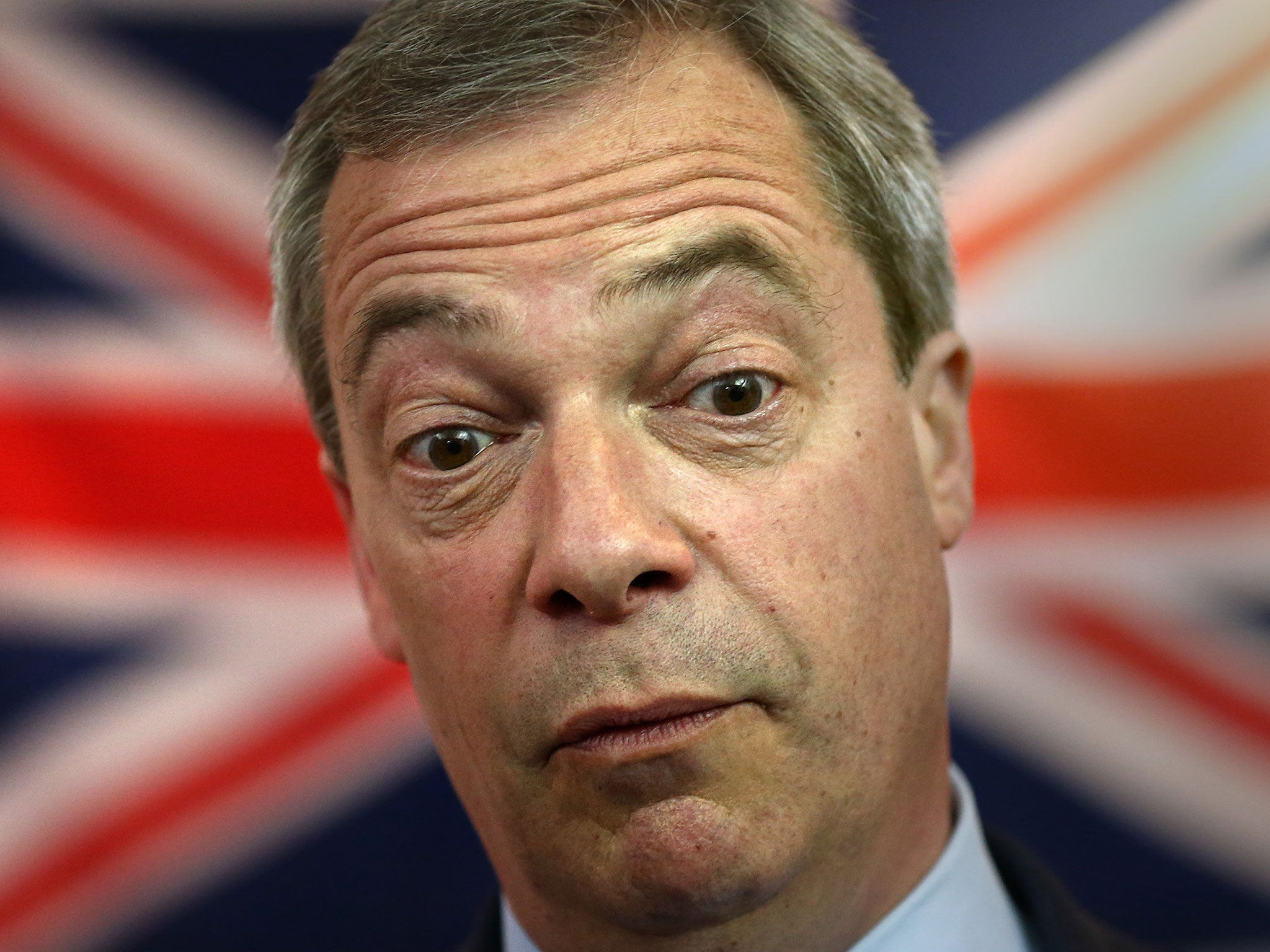Ukip is the only main political party to not address LGBT rights in its manifesto
The party said it isn't "driven by the needs of differing special interests groups"

Charities representing lesbian, gay, bi-sexual and transgender (LGBT) people have criticised UKIP for being the only one of the seven main political parties to not mention gay people in its manifesto.
As politicians come under increasing pressure to tackle issues facing the LGBT community, Ukip’s track record has been marred by a string of embarrassing gaffes.
Earlier this month, Ukip’s prospective parliamentary candidate Kendrick 'Dickie' Bird was accused of calling former Liverpool and Chelsea Fernando Torres “a gay boy like the rest”, according to a report by the Oxford Mail.
The party appears to have made no attempt to mend its image over LGBT rights in its manifesto. In comparison, the Liberal Democrats dedicated an entire page to showcasing its efforts to support those who identify as LGBT, while the Labour Party has promised to continue tackling homophobia at home and abroad.
Making less of a statement than the other parties, the Conservatives mentioned LGBT rights in its section on its Big Society policy, in a paragraph on “equal rights”, and reminds readers that the Coalition introduced of gay marriage.
Meanwhile the Green Party has published a 10-point list of policies to “advance LGBTQ rights”, including combating violence by legislating against all forms of hate crime; and Plaid Cymru is pledging to eradicate LGBT-based bullying in schools.
The SNP's stance on LGBT rights is as yet unclear, as it has not yet released its manifesto.
A spokesperson for LGBT charity Stonewall has called the decision "extremely disappointing."
“It’s extremely disappointing that Ukip has failed to recognise or agree to help tackle issues affecting the way certain groups of people can live freely as themselves without fear of persecution or discrimination.
"We’re at an extremely important point in the LGBT movement where, if we have any hope of achieving this, complacency is not an option".
Alistair Stewart, the Acting Executive Director of the Kaleidoscope Trust, which fights for LGBT rights overseas, has said the Ukip manifesto includes a “number of things” that are “disappointing, if not surprising.”
“The absence of any reference to the LGBT community really stands them out compared to almost all other parties, who have flagged their commitment to supporting LGBT voters.”
Addressing Ukip's plan to cut the international aid budget and scrap the Department for International Development, Stewart said: “As an organisation that works to support LGBT people abroad we are incredibly concerned by the policy to cut the aid budget."
He added the fund is one of the UK’s “strongest tools” to supports human rights abroad, as well as those who defend them.
A Ukip spokesman has defended the decision and said: “Ukip believe absolutely in equality, and as such have produced a manifesto for all, rather than driven by the needs of differing special interest groups.
“We believe that amongst other things properly funded healthcare, that lower taxes, that a decent defence and political freedom from the European Union are things that are good for all people regardless of gender, ethnicity, religion or sexual preference. It is a message of equality and universality.”
Join our commenting forum
Join thought-provoking conversations, follow other Independent readers and see their replies
Comments
Bookmark popover
Removed from bookmarks